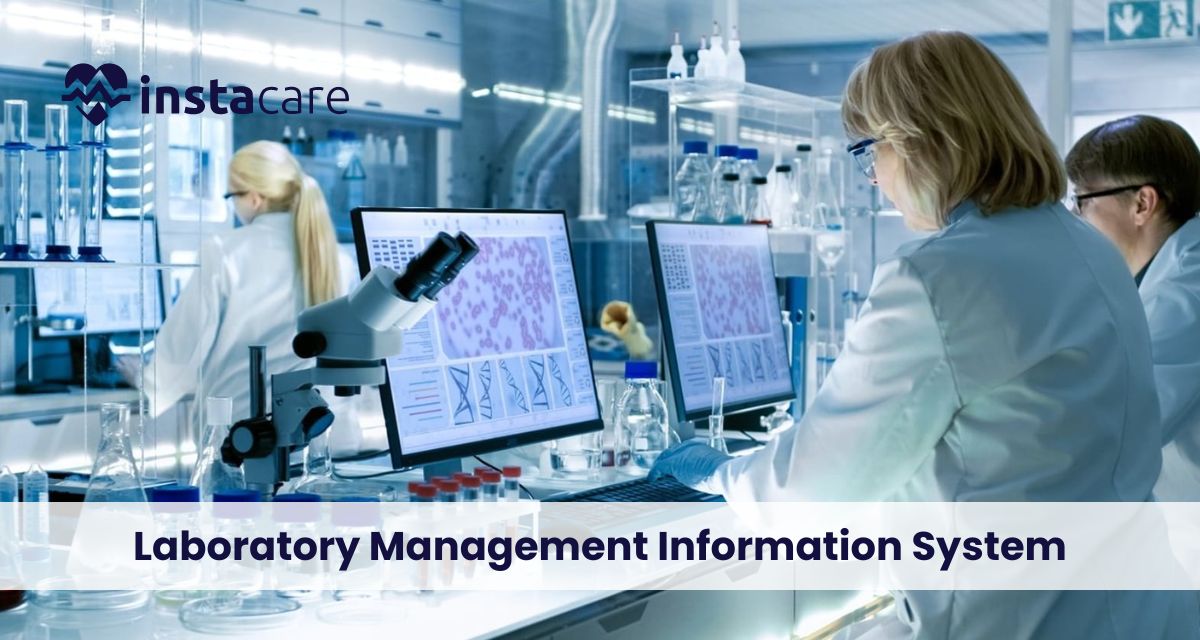Last updated on Monday, 19, August, 2024
Table of Contents
Whys and How’s of Laboratory Management Information System?
Changes in technology are now necessary rather than appealing. Development in technology has revolutionized many of our sectors. The intervention of technology in healthcare is not only changing the way the general public is being treated but is also changing the attitude of the customers towards healthcare.
Healthcare is more accessible and effective than it has ever been. This change is partially due to the use of different healthcare software. Software is taking over the healthcare industry, from medical diagnosis to hospital management information systems. Management software, like LIMS, is acknowledged to play a part in improving healthcare.
Let’s examine the healthcare sector from a software perspective, with a particular emphasis on LIMS! The name identifies a Laboratory Information Management System (LIMS) as a software application primarily used in efficiently managing a laboratory facility.
Put the software aside and consider the significance of laboratories. Can a diagnosis of an illness be made without using laboratory testing? Could we have developed a vaccine and survived the recent COVID-19 epidemic without laboratory testing? Naturally, no! The importance of laboratory management software is demonstrated by these and many other factors.
The Laboratory Information Management Systems (LIMS) Advantages
We already know the significance of laboratory management systems in light of the need for quality laboratory facilities. These are some of the main advantages of LIMS that you should be aware of:
1- Sample Registration
Sample gathering and appropriate handling constitute the initial phase where LIMS is crucial. Every time a sample is taken at a laboratory, regardless of whether it’s blood or urine, all patient data is documented. We are able to document this comprehensive data and go forward with sample processing thanks to the laboratory management system.
2- Allocation of Samples
A laboratory may function independently or in conjunction with a medical facility. There are two categories of laboratory testing:
In-house testing, in which test specimens are handled within the same lab building.
laboratory testing that is outsourced, in which test samples are often transferred to different testing facilities when a specific test isn’t available.
Based on available resources, a test sample may be assigned for additional testing through LIMS.
3- Tracking Samples
A test sample is sent for analysis as soon as it gets to a lab rotary facility. A laboratory may receive, handle, and interpret hundreds or thousands of samples every day while keeping patient flow in mind. Managing a large number of samples can be somewhat challenging, but laboratory management solutions help by giving you a thorough understanding of each step of the sample processing process.
4- Management of Laboratory Tests
Which tests will be carried out first and which must be completed on a single sample? Thanks to LIMS, test management has become much simpler in this and many other areas. You now have more control over the testing processes that need to be carried out.
5- Creating Reports on Tests
As a test report is being created, lab tests that are either internally or externally done are examined. The LIMS is used to make lab test reports. Data is entered into the system by laboratory staff, and automated lab reports are produced. You have the opportunity to customize these lab test results using LIMS, and they can be created in several forms. Before being given to patients, these test reports are not only prepared here but also verified.
6- Monitoring Stocks and Supplies
Inventory management in laboratories can be difficult, particularly in establishments with higher customer traffic. Because of this, it’s critical to maintain track of laboratory supplies and inventory, and fortunately, LIMS is available here. You don’t need to worry about repeatedly monitoring inventory supplies because you can access all of this information with a single click.
7- Laboratory Instrument Monitoring
For effective laboratory testing, laboratory devices might cost millions of rupees and need to be properly monitored. With LIMS, you can monitor the instrumentation status and combine all equipment details. Reminders for technician visits are available, and this will guarantee efficient laboratory operations.
8- Information Administration
Data is crucial, particularly when it comes to medical data. In this sense, both individual and population data are significant and can offer reliable, healthful insights. Managing various patient data formats can be quite challenging; in this situation, the laboratory management system helps to keep the database up to date.
How Do I Select a LIMS?
When looking for the best laboratory management information system, there are a lot of options available. This is conceivable because choosing a choice might be difficult, but there are a few things that can assist you in making an informed choice;
- For any software program, user-friendliness is an essential component.
- It should be able to adequately meet the needs of your establishment.
- Appropriate security measures are necessary to stop data breaches.
- Any program you select ought to be reasonably priced.
- There ought to be a ton of customizing possibilities.
How Can LIMS Benefit Your Company?
This could be the case if you are a facility manager of laboratories and might be looking to use laboratory management software, wondering what kind of return on investment this would provide for the company. This is a compelling summary of the factors you ought to be aware of;
- You benefit from a win-win situation because of automated operations.
transparency as all of your operations will be automated. - An efficient workflow leads to effective laboratory operations.
- Real-time management as a result of accurate tracking throughout the entire sample processing process.
- Assurance of authenticity since a report generated by a computer is checked for accuracy before being given to patients.
- Enhanced client flow as a result of easier procedures and greater convenience.
How Can an LMIS Be Implemented?
- Determine Needs and Requirements: To begin, assess the laboratory’s present procedures, areas of concern, and long-term objectives. This will assist in determining the precise specifications and features an LMIS needs.
- Choose the Best LMIS Solution: Examine and compare different LMIS providers and products to determine which one best meets the requirements of your laboratory. Think about things like vendor support, integration capabilities, and scalability.
- Smooth Integration: Make sure that the LMIS will integrate easily with the remaining IT infrastructure and other healthcare information systems in place at the facility, such as a Hospital Information System (HIS) and an Electronic Medical Record (EMR).
In Summary
Laboratory management information systems, or LIMSs, offer flexible solutions for all of your lab requirements. It streamlines your laboratory options and increases patient flow like never before. It’s, therefore, time to invest in laboratory management software to increase your authenticity, efficiency, and convenience. You can obtain comprehensive information on Practice Management Software and grow your business, just like you can with LIMS.
FAQs
How may laboratory operations be made better using an LMIS?
There are various ways that an LMIS might enhance laboratory operations, including:
- Automating manual processes such as inventory management, result reporting, and order entry
- Enabling real-time monitoring of resource usage, test findings, and sample status
- Facilitating effective workflow prioritization and scheduling
Which factors should be taken into account when establishing an LMIS?
Some important things to think about while putting an LMIS into practice are:
- Evaluating the unique demands and specifications of the laboratory
- Choosing a system that works with the software and IT infrastructure already in place
- Ensuring privacy, security, and adherence to pertinent laws
What kinds of data are kept in LIMS?
All of the sample’s relevant information, including its source, expiration date, storage, and researcher names, is kept in the LIMS. Preserving all the data lowers the possibility of sample loss, contamination, and expiration. The position of a sample can also be tracked using the LIMS.



